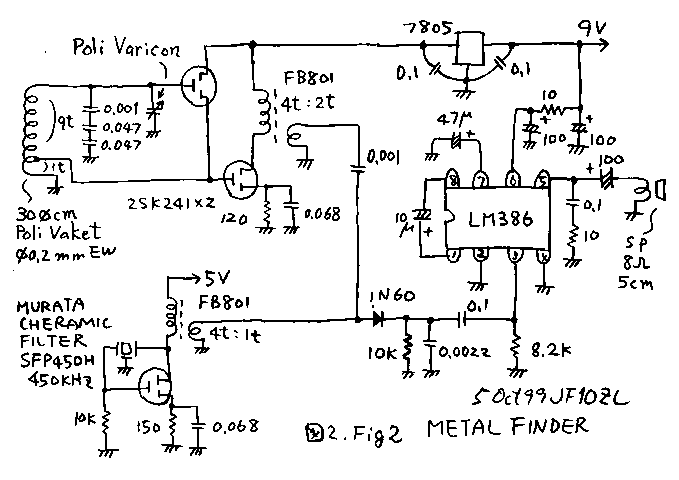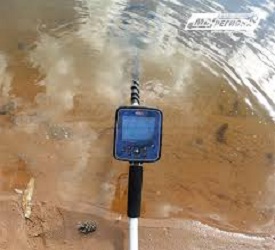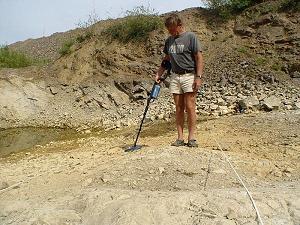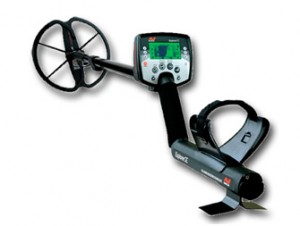Buy a metal detector In the category treasure hunting more articles and learn more information about Buy a metal detector Reviews Price Specifications Features Image manuals videos Accessories All this in metal detectors for gold.
Buy a metal detector
As for any purchase of high-tech”equipment (hi-fi, computers, chains etc.), a good preliminary study is preferable to an instinctual purchase when you want to acquire a metal detector. Several brands dominate the market: Tesoro, Fisher, XP, Garrett, White’s, Minelab, Teknetics, etc. They offer a number of references, ranging from the detector for kids models high range, passing through very specialized activities-oriented products (underwater research, research of large masses, etc…). It is not clear to sort in everything, especially when it begins in metal detection!
The main difficulty, in my opinion and in addition to the existing number of templates, just the distribution of metal detectors circuit sometimes resembles a real ‘jungle’, in which the neophyte may quickly lose themselves and to tell anything! Truth be told, I touch at quite a technical areas around my hobbies (music synthesizer, computer,…), but I have never seen, apart from prospecting, such rat race fair and a such unpacking of misinformation and bad faith on the part of some professional (all the same not generalize, there are honest people) and some magazines!
Sources of information on metal detectors
To begin let’s review sources of information which you use (or learn to beware) should be in your journey:
The advertisements on the detection of metals:
Although it is tempting to be lulled by what is written in the advertisements (the goal being to sell, they are hard-hitting, reassuring and always tell beautiful stories!), you should forget this source of information! You will certainly find technical data on the products (and again… always realistic steps!), but how they are presented leaves no doubt about the goal: sell! It is certainly the role of advertising but we forget easily, especially when the pub is disguised…
Disguised? How ca? I come…
Metal detecting magazines:
Caution ground undermined! Many magazines are published by companies that are themselves the distribution of material (the treasure, a treasure of history, coins and detection, Detection Passion, treasures and detection). Objectivity inevitably risk some in starting! The risk is then that the “test bench” magazines fan you the merits of any particular device because it is part of the directly imported by the publishing company brands (avoiding of course talking about the competition devices)! The trials will then tend to pull on the tail of the fish so that it has the right size! I do not say that the lie is systematic, but the results and comments are sometimes arranged to have these devices you appear to be the best of the moment! In addition, the results of many comparative magazines or manufacturers are given “in the air” (that is to say that only air separates the metal object from the sensor head in the tests). Unfortunately, if you detect “in the air” you would most need of metal detector, your only eyes would suffice! And it is not uncommon to see a detector lose more than 30% of its power between airborne detection and detection in soil, especially if the latter is mineralized!
The outlets ears and the experience of others:
This is certainly where need you the most effective! Not obvious if you’re in detection of metals to the world… Go in rallies of prospecting and prospectors Associations. If you live on the seafront, you probably often see prospectors on the beaches. Try to start the conversation!
Go hang out on the Net as you do at the moment. Personal sites of fans sometimes are a good source of info, each is from his commentary on the equipment he uses. The forums are not evil either. Apart from this site, will also take a ride on special forums.
Choose his metal detector
Buy a metal detector
This page is primarily intended for beginners in detection. The old prospecting backpackers will learn not much reading because they know most of them better than me manufacturers offer and have plenty of opportunities to see and test of new metal detectors. I made this page thinking in particular of people interested to acquire their first machine.
Before going further, I invite you to go take a little look on the page for the operation of a metal detector. This will allow you to familiarize yourself with certain terms that we use in what follows.
As in many fields, before you buy a metal detector should ask you two key questions:
-“what is my budget?”
-to do what?”: prospect of dry sand beaches, sand wet beachfront, ploughing, the forest, areas inhabited…?
The ideal will of course find the best compromise between price, performance/specifications and ease of grip.
The price of the metal detectors:
An important thing is to remember: the important is not to buy the metal detector the most expensive that we can afford, but to choose the one that is actually what we want to do and its level (a “beginner to the Sunday” even wealthy will not have the same needs or the same experience as a ‘pro’)! Type in the top of the range is not necessarily the best thing to do when you start! A complex and powerful model can be very well adapted to a demanding and experienced prospector, but will operate only on 40% of its capacity in the hands of a novice, even after several months. In the worst cases, the beginner will be completely overtaken by his machine and will tire very quickly!
On the other hand, do not yield to the temptation of the very cheap. For detector there’s no miracle! Must be a minimum price!
I recently saw an ad in a TV magazine which featured a metal detector in 80 or 100 euros: ‘the joy of small and large’ they said (or a sales pitch of the kind)! Return empty-handed to a prospecting trip it’s funny at the beginning, but we get tired very quickly! I can say without too much wrong with a detector of this price nothing can be detected more than 10 cm (and I think being generous) and that you leave more hunting to the capsules of beer than anything else! With a device of this type you will be disappointed, go ‘struggle’, do not find great thing and discourage you very quickly! What you disgust ever prospecting!
There from 200 euros that is beginning to find “usable” detectors (the Compadre of Tesoro or the ACE 150 and the Garret ACE 250 can for example be very interesting for a beginner, especially for the young: there are not cheap, extremely lightweight and have a relatively good discrimination of the ferrous to their price.) But these machines lack a bit of power, at this price there is no miracle!). The ADX150 of XP is also an excellent machine for beginners. It is in my opinion a good power * money available today for around 400 euros in ‘small’ detectors, with the option to add a XP wireless headset.
I imagine that if you want to buy a sensor rather than rent one, it is that you intend to go out prospecting fairly regularly. You do not intend to 1500 francs euros in a complex and specialized machine, but you still want to have a sufficiently powerful machine easy to resell if you decide one day to move to a model at the top.
In this case, your choices will probably move towards a mid range unit. Prices ranged generally between 400 and 800 euros for this range of machines.
What type of prospecting?
Before you buy a device, ask yourself what you will do and on what type of terrain you will prospect. Indeed, some types of terrain ask to be surveyed with a certain type of devices!
Let’s take an example:
You live near the coast and will probably want to explore the beaches. Here, two worlds coexist: the dry sand and wet sand.
On dry sand all sensors will be the case, while on the wet sand, only a small number of them will be able to get by without “galley”! This is simply due to the fact that wet sand presents a very strong mineralization which literally screen to electromagnetic waves sent by the detector (very mineralized soils of the Massif central will have the same drawback).
Buy a metal detector
For this type of terrain, “pulse induction” detectors are wonders (Sand Shark, Impulse, Surfmaster PI, pulse Star, etc…)! But they are quite expensive (between 750 and 1500 euros) and have a big disadvantage: they discriminate the ferrous!
Detectors “BBS” (as the Sovereign or the Minelab Ertrac) are also very well suited to highly mineralized grounds and allow discrimination, but they exceed 800 euros!
All these devices can be of interest provided they have the capacity to pay and to be sure you want to detect mainly on mineralized land (except perhaps the Sovereign is a good choice for all types of terrain, but that is expensive and which has a masking of the ferrous too important). It would therefore be a mistake to buy a unit Pulse Induction “just in case” you would be asked to meet one day these types of terrain! In this event, it will be better turn you a device more standard and less expensive but occasionally not too bad supporting strong mineralization in the ground!
Another example:
Some specialized surveys require a suitable material: If you looking for jewelry lost when swimming in the Mediterranean or in Lakes (no or low tide), will need you to go under the water! And in this case, better is worth to be equipped with a submersible (as the Excalibur 1000 Minelab, the Stingray II, 1280X, Surfmaster, the Fisher CZ20,… which are all intended to work under water, whether it is fresh or sea)!
A final example:
If you think prospecting mainly on areas heavily polluted metals (area, demolished homes, etc.), better will be to opt for a detector of metal having a very good discrimination and a small head of detection (to reduce the phenomenon of masking of one metal by another).
Main technical features:
Discrimination of metal detectors systems:
All metal VLF (as opposed to detector PI “pulse induction”) detectors are equipped with a system of metal discrimination to eliminate certain types of metals. However, all are not equal in this area, some devices are more sensitive to the ferrous than others (and eliminating them therefore less well).
More a system of discrimination is efficient, less is required to mount the discrimination to remove the ferrous! Result: better it detects some easily disposable non-ferrous objects (many are gold objects that have for example a discrimination threshold low enough)! Keep in mind that discrimination of certain objects in aluminium (capsules, etc.) often results in the rejection of certain gold jewelry! This is not really a problem on plots where you have a very low probability of finding gold, but it can become for example in seaside, where the temptation to climb the discrimination is important, given the industrial quantities of aluminium capsules that contain some beaches!
As owner of a Tesoro, I must recognize that these devices are particularly effective discrimination (discrimination Tesoro is apparently fairly deemed), even if the power fails badly.
Some ads (disguised as article or not), you emphasize the merits of the systems of Notch discrimination as being able to perfectly eliminate a capsule aluminium without removing anything else. Attention, as I explained in the page on the functioning of the sensors, this statement is totally false! Even if the Notch system very well eliminate a type of targets (zippers aluminum capsules, lead beads, etc…), what makes it very interesting on polluted land, it is no miracle! A gold jewelry that will be a very close signal of a capsule of aluminum is likely to be discriminated against!
A little polluted field is better for my liking having a metal detector with a good linear discrimination set low enough, to have a Notch discrimination that might hide some very beautiful targets!
A very interesting solution is the multi-ton detection system. I know especially developed by XP (I has happily GoldMaxx Power), but other brands should probably propose similar systems. On the GoldMaxx or the GMaxx, the multi-ton is all metal, but each type of metal sounds different: its serious ferrous =, its medium hunting cartridge, aluminum foil, etc… and his acute = correct target. This mode allows you to hear all targets (therefore to understand the plot), but whether it is interesting to dig or not (with a little usual it is easy to differentiate targets producing tentative signals). The volume of the bass sound (ferrous) is adjustable and can even be cut.
Whatever discrimination system chosen, the best thing to do to be able to realize the faculties of discrimination of a detector is yet to test it with a friend, or in-store!
The correction of the effects of soil:
Here, too, virtually all metals VLF detectors are equipped with. Implemented technology varies from one model to the other but it should be cautious in reading the specifications.
There are four types of ground effect compensation: the factory preset, the manual, auto and the BBS system.
The preset corresponds to a setting set by the manufacturer at the factory. This setting is calibrated on a middle ground effect.
The manual adjustment allows the user to adjust the sensor to the ground (via a potentiometer 10 rounds, 3 3/4 laps, 1 round…). It allows a very precise adjustment of ground effect compensation, as a consequence a better penetration of the soil, hence a better prospecting power! The only problem is that need a little time to set the camera at the beginning of each exploration (and possibly adjust along the way, if ever the ground mineralization comes to change).
The factory preset is neither more nor less than a manual that it would have frozen the value (wholesale, manufacturer rather than put a potentiometer has established a fixed value resistor). The problem is that the effect of average soil on which the sensor is preset still tends (and better!) to be greater than the effects of soil of most of the land that will be encountered, hence “useless” power loss! The preset levels in some ways down…
In General, for the best detector (in terms of power), you can push it to its limits (limit of stability in terms of ground effect), better. My taste, only the manual setting to really flirting with the limits of a device.
The automatic setting is a setting made microprocessor based on the analysis of the signal received by the sensor. If this setting is quite effective on a normally mineralized ground, it however often becomes exaggerated on mineralized land, causing a loss of power “useless”!
When buying a metal detector, pay close attention to advertisements that speak of automatic setting! Sometimes, the manufacturer has meant factory preset! If you want to opt for an automatic detector, check this point and do not let you fool!
The BBS system is not a system of compensation of ground effect setting itself. The detector uses simultaneously several frequencies (17 for the Sovereign). By analyzing the resulting signals of each of these frequencies, the detector will select that will provide the best performance (each frequency reacting differently to a given ground effect type).
Small or large head? :
A small head with the advantage of being able to slip around (roots, holes, brush, etc…). It also offers the advantage of limiting the effects of hiding a good nearby by a ferrous target (in mode discrimination of course!)!
A large head as it can detect much more quickly (the indoor surface being most important) and sometimes save in depth!
Good luck for the purchase of your metal detector!
Related Articles
- ground penetrating radar units The IDS Opera
- Sef Detech Coil 18″ X 15″ For Etrac Field Test Reviews
- fisher 1270 metal detector
- Metal Detecting For Gold Videos
- smoke detector coverage area
- Strong metal detector
- The ounce of gold (gold unit)
- archeology profession search for the remains of the past
- Teknetics T2 Special Edition Metal Detector
- Where do they come native gold nuggets












